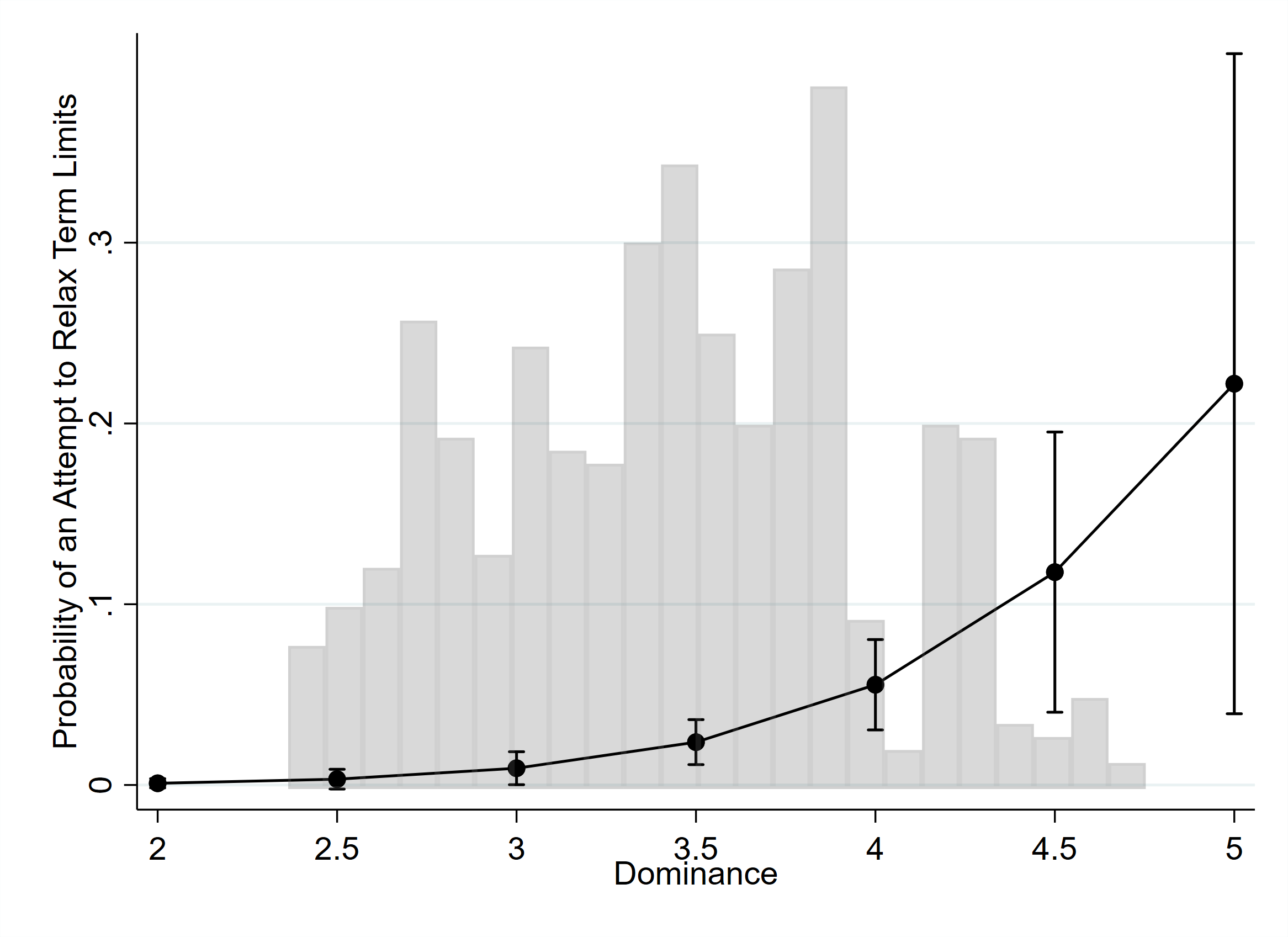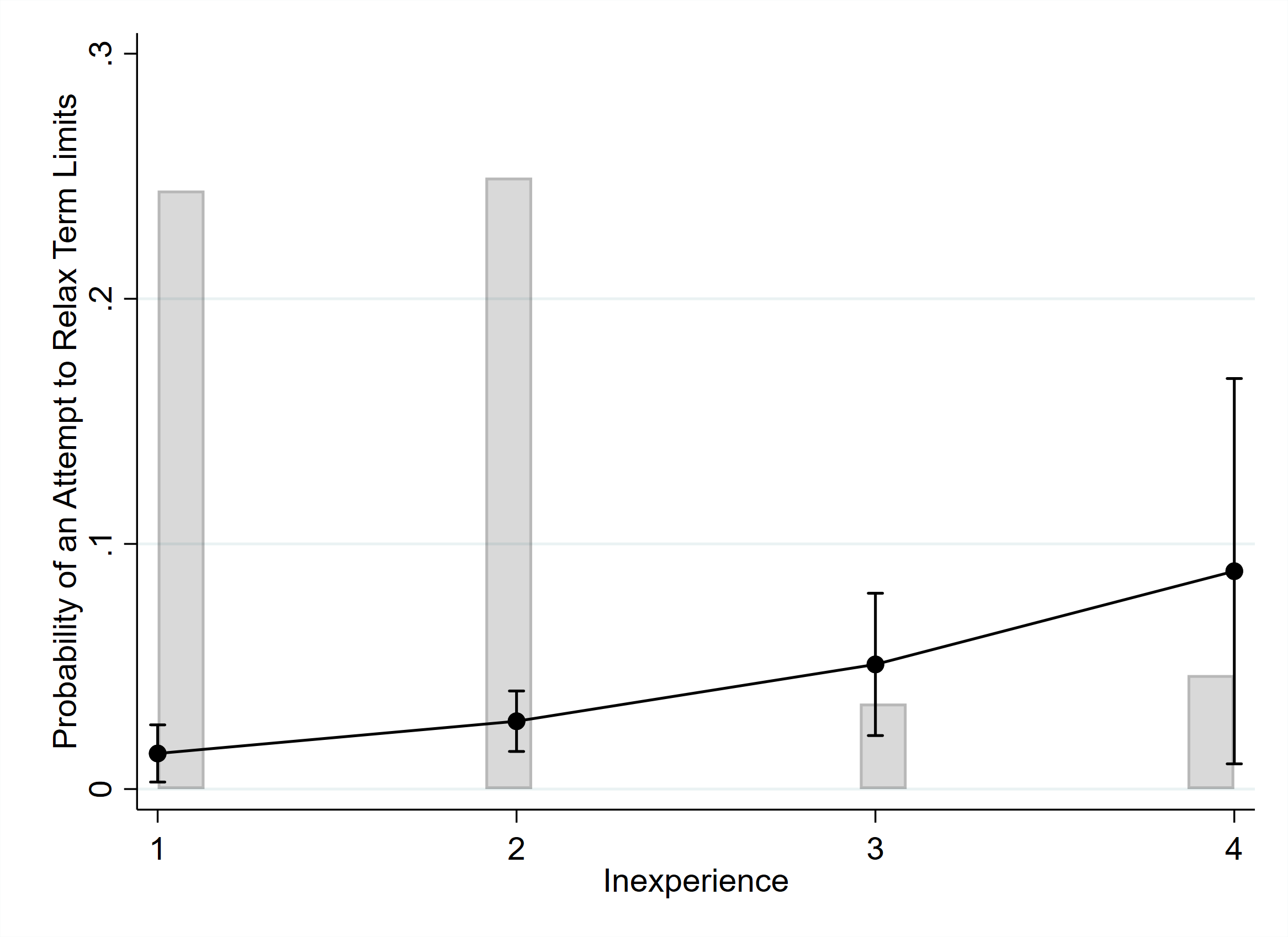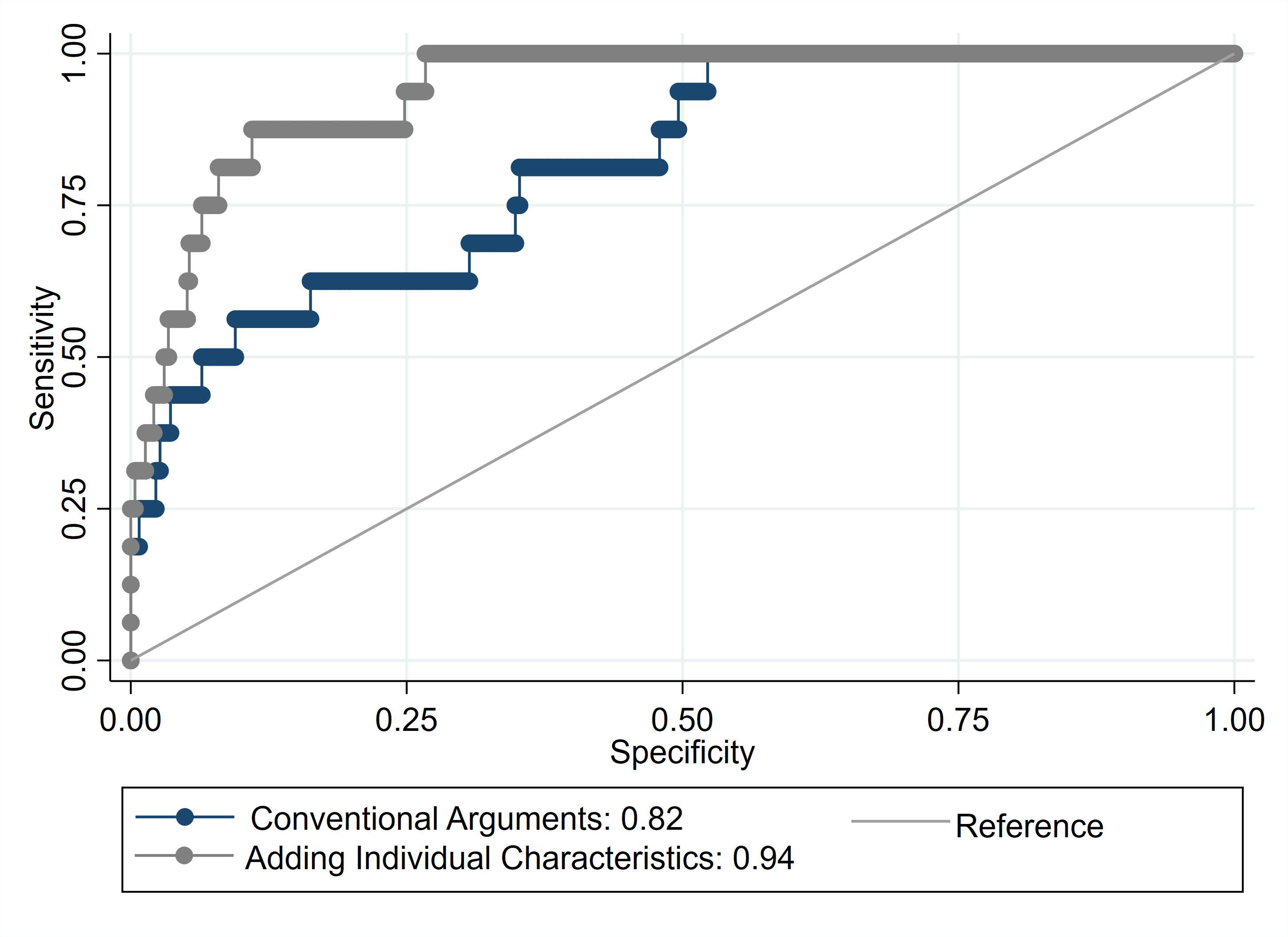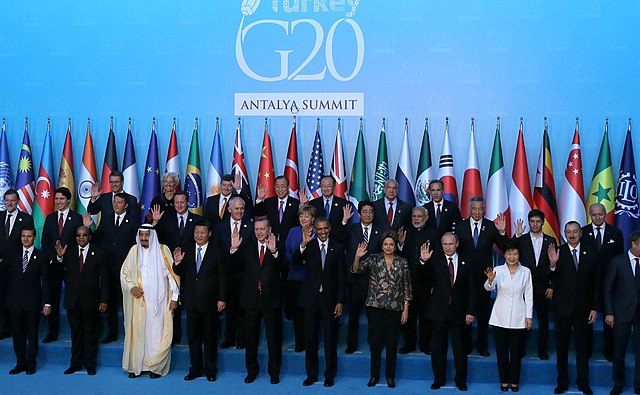Presidents from all around the world are reforming the constitutions of their countries to extend their terms in office. This trend includes powerful statesmen, such as Vladimir Putin of Russia (2020), Abdel Fattah el-Sisi of Egypt (2019), Xi Jinping of China (2018), and Fernando Henrique Cardoso of Brazil (1997). This overreaching behavior is not new. Among the 221 presidents from Latin America, the Middle East, Africa, and Asia who faced the end of their terms from 1975- 2018, 30% attempted to extend their stay in office.
Presidents who relax term limits assault democratic institutions. These leaders subvert the rule of law by signaling that those who wield political power can change the rules to consolidate their position and perpetuate their term in office. Leaders who hold power for extended periods undermine checks and balances because they develop loyalties in the state by making more appointments to the bureaucracy, courts, and the military. Furthermore, overreaching leaders erode democratic norms by constraining political competition. They enjoy an incumbency advantage, including access to governmental resources, name recognition, and voters’ aversion to change.
So far, most quantitative research has attempted to explain the removal of term limits centered on the context in which presidents govern. These works have provided insights on how the institutions that constrain and enable presidential behavior, the distribution of power among political actors, and the broader context explain changes to term limits. However, the relation between the individual characteristics of presidents and their overreaching behavior has not been closely examined.
I contend that the personal attributes of presidents explain why a minority of them have actively pursued constitutional reforms to retain office, even in adverse institutional contexts. In my recent contribution to the JOP, I build on semi-structured interviews conducted with 21 former presidents to propose that more dominant and politically inexperienced leaders are more likely to attempt to retain office.
Dominant individuals are inclined to outdo others, impose their will, and like to control their life circumstances. They should strongly dislike losing office, and they have the disposition and skills to try to retain it. Inexperienced leaders, in turn, have a shallow understanding of the presidency. Their restricted knowledge of the office should make them perceive fewer obstacles hindering their ability to relax term limits. In addition, their scant political socialization should free them from informal constraints from politicians and democratic practices.
I test the argument on a sample of Latin American presidents who governed for six months or more between 1945 and 2012. In all Latin American countries, excluding Mexico, 10% of the 302 presidents who governed in this period challenged their term limits. Thirty-one leaders attempted forty times to overstay in office, succeeding twenty-nine times. Besides the active overreaching behavior of presidents, the region provides an excellent sample to study long-term trends because it is the only region where all its countries had term limits before the third wave of democracy.
The data used to test the theory comes from the Presidential Database of the Americas (Arana Araya 2017), which contains biographical and psychometric information about the presidents of the Western Hemisphere who governed from 1945-2012, and semi-structured interviews conducted with former presidents. The information about the presidents’ dominance was collected in an online survey filled out by experts, while the leaders’ political inexperience was collected from biographical data. In total, 361 experts from twenty-nine nationalities filled out 531 online surveys in English, Spanish, or Portuguese for 152 Latin American presidents.
The first graph shows that when presidents have a very low level of dominance, the predicted probability that they will try to relax their term limits is only 0.2%, but the chance of an attempt increases up to 16.3% when the leaders have the maximum score. The second graph shows that when a leader is highly politically experienced, the likelihood that he or she will attempt to remove term limits is only 1.4%, but when presidents had no previous political experience, the chance of an attempt increases to 9%. The findings hold under discrete-time duration models and under cross-sectional analysis, after accounting for endogeneity and potential selection bias, under diverse model specifications, the use of different subsamples, and diverse measurement strategies.



The findings centered on individual differences were reinforced by the fact that education and political ideology also explained the presidential challenges to term limits. Contextual variables still mattered, nonetheless. Dominant and inexperienced presidents become disruptive when leaders enjoy strong legislative powers, lead new parties, immediate reelection is forbidden, and govern in a democratic context where higher courts are not fully independent.
This study opens relevant avenues of research. Quantitatively examining how the characteristics of heads of government relate to political outcomes will allow us to understand the true impact that leaders make across situations in which their actions are central, such as legislating, declaring emergencies, and appointing cabinet members. Uncovering this information is of utmost importance to identify the consequences of choosing certain individuals for office. That, in turn, would permit voters and organizations to select as candidates individuals that more accurately represent them, facilitating democratic representation and accountability.
This blog piece is based on Ignacio Arana Araya’s forthcoming The Journal of Politics article titled “Dominant Personality and Politically Inexperienced Presidents Challenge Term Limits”.
The empirical analysis for the article has been successfully replicated by the JOP and all replication files are available in the JOP dataverse.
 Ignacio Arana Araya is an Assistant Professor at the Institute for Politics and Strategy at Carnegie Mellon University. He studies how the personality traits and other individual differences of heads of government impact executive governance, and the consequences of variation in political institutions across countries, with an emphasis on Latin America. More information is available at www.ignaciorana.org.
Ignacio Arana Araya is an Assistant Professor at the Institute for Politics and Strategy at Carnegie Mellon University. He studies how the personality traits and other individual differences of heads of government impact executive governance, and the consequences of variation in political institutions across countries, with an emphasis on Latin America. More information is available at www.ignaciorana.org.


